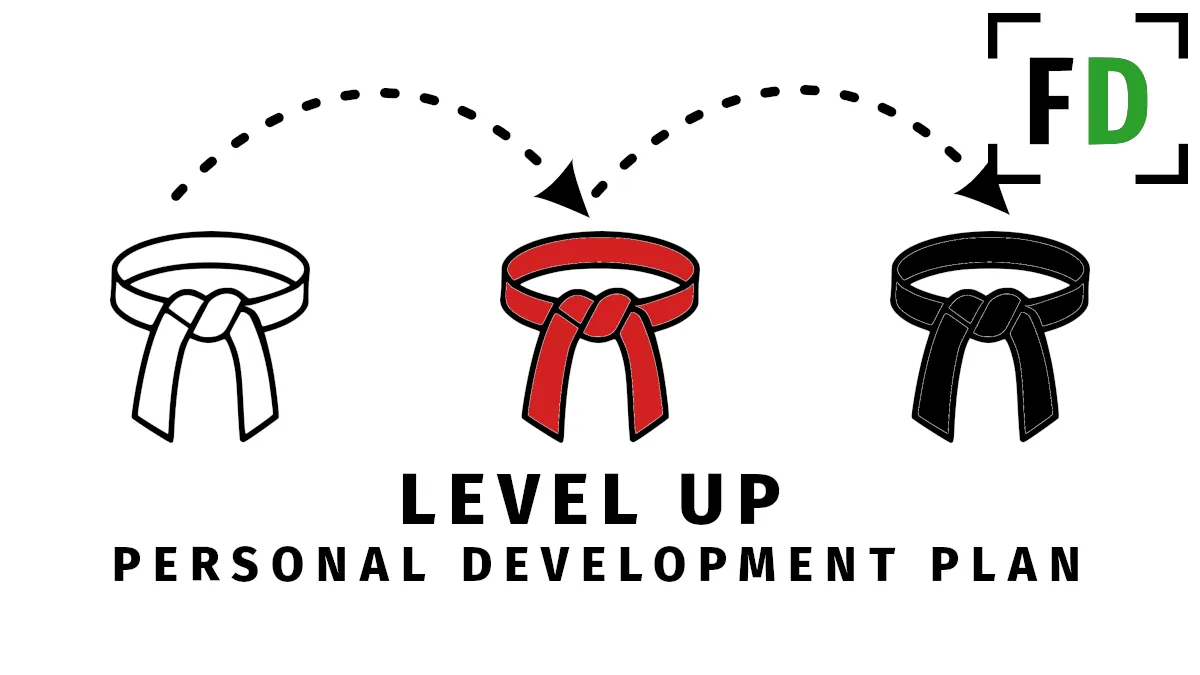To become a master at any skill or discipline requires dedication and hard work. But being more efficient might cut your journey to perfect your craft in half or more. The ideas and tips below will not only get you there sooner but will ensure you develop abilities few do. Perfecting your craft is an essential way to become who you are meant to be and to face the dragons that stand in your way.
Being average will get you precisely where everyone else is. That’s what being average means. The only way to rise above them in business, in your financial situation, or in life is to reach beyond average and become a master of your craft.
Your craft doesn’t need to be a hobby or artistic expression. It can be anything that takes time and effort to perfect and has value. Here are some examples:
- Sales
- SEO
- Video Editing
- Yoga
- Martial Arts
- Sport
- Woodwork
- Plumbing
- Programming
- Photography
- Writing
Mastering any one of these skills could make you a millionaire.
Perfecting Your Craft Makes You Uncommon
Years ago, I trained tai chi every morning with my master in Beijing. I’d wake up at 4 am so I could be there to start training at 6. It wasn’t the soft style tai chi you see old people doing in parks. It was intense, exhausting, and I’d always come away with bruises.
But he taught me something more valuable than the tai chi form or the fighting skills. I once asked him what I should focus on when training at home, and his answer provided me with a route to mastering any skill. He told me:
“First maximize your strengths; only then improve your weaknesses.”
When learning something new or trying to improve an existing skill, it’s natural to want to improve the areas where you are most weak. But my master would say that after you expend all that effort and finally make some improvements to your weakest links, all you have left is an average ability level across the board.
Instead, you should look to focus on the areas where you’re already strong and see how far you can push them. Become out-of-this-world amazing at one part of your game before you worry about what needs improvement.
11 Ways to Perfect Your Craft
1. Study Up
It’s foolish to think that only beginners need to learn the techniques of their craft. At the start of your journey of perfecting any craft, there is a lot to learn, and you will spend most of your time studying the tools and techniques of whatever it is you’re learning. But don’t think that you only need to learn once.
Professional athletes are the perfect example. Despite being the best at their chosen sports, they are constantly learning more and developing new skills. For instance, fighters in the UFC learn new strikes and submissions even after becoming champions. Watch the evolution of Jon Jones after he becomes a light heavyweight champion, for example.
What does this look like for you, though? You don’t need to be a world champion to utilize this tip. You just need to have a little humility after you start making progress toward your goal.
For example, to be a world-class coder, you must try new programming languages, which means becoming a beginner again. However, gaining skills in different languages will make you a better coder overall.
2. Create a Practice Routine
Practice makes perfect!
Without a routine or a program to follow, you will spend energy and willpower thinking about what you should do instead of spending that energy on actually practicing.
New gym goers often have this problem. They walk into the gym with no idea what they will work on that day. So they flit from machine to machine, walking around, checking their phone to find their next exercise.
Without clear direction or focus, they can’t push themselves on each set, and without an overarching goal or plan, they make slow progress and might even end up quitting.
Make sure this isn’t you!
Spend some time writing down and setting up a routine that you can follow every day. Then when it’s time to work, you just follow the routine, no thinking necessary.
Practice routines will differ depending on what craft you want to perfect, but generally, it’s a good idea to have a mix of easy and challenging things to work on. If you are juggling a career and family life, planning some time each morning with a morning routine may be what you need to help master your skill or craft.
3. Find a Mentor or Teacher
For some skills, finding a teacher is a must. For others, like jogging, it may have never crossed your mind that you need a teacher. But if you want to perfect your craft (and not just get good at it), you’ll need the advice and expertise only a teacher or mentor can give.
A mentor will not only show you what to do, but more importantly, they’ll tell you the mistakes you’re making and should stop making. Finding this out might save you years of incorrect practice.
Find a mentor that fits you. Not every expert is born to be a teacher or mentor. Just because they have the skills you want doesn’t mean they can teach you to do them.
Language partners are a perfect example of this. You’ll have heard of language partners if you’re studying a new language. You get together and spend an hour or so practicing each other’s language. But you quickly find out that just because they are a fluent French speaker doesn’t make them a good French teacher.
Once you get involved with the community or your craft, you’ll find potential mentors. You don’t need to formally ask them to mentor you; just ask them about what you’re working on or a problem you’ve been having and see how they respond; you’ll know if someone is a natural mentor very quickly.
4. Ask for Feedback
Asking for feedback is only half the battle; you must also take on what they say and make adjustments accordingly.
You don’t need to find a world expert to give you feedback; sometimes, even laymen can give you good feedback. For example, when you see someone on the bench press at the gym, it doesn’t take a powerlifter to understand that your bar is going up at an angle; anyone can tell you which side is weak.
It starts with asking, though. Sometimes it can be hard to ask for feedback, you might not want to hear it, but with a bit of grit, you will grow if you take the feedback on board.
The difference between the amateur and the professional is that the amateur is happy with his strengths, whereas the pro isn’t happy until he destroys his weaknesses.
To perfect your craft, you want to maximize your strengths and then ask for feedback to work on your weaknesses.
5. Join a Community
Whatever it is you are working on, there are others that you can connect with. Usually, a quick search online will turn up all sorts of ways to connect with others.
- Evening Classes
- Discord Servers
- Facebook Groups
- Competitions
- Expositions
- Retreats
- Workshops
Becoming part of a community will help you find the mentors and teachers you need. It will also give you access to the latest techniques or studies. You can use it as a source of motivation when you feel like giving up or taking a day off too.
6. Emulate Someone You Admire
When I was a child, I loved Bruce Lee. I learned martial arts just so I could be more like him. I read his books and practiced for hours every day. Over 30 years later, I still look up to Bruce Lee when I hit the heavy bag or practice new techniques.
Having an idol or someone you admire will give you unending motivation. They may also have published books or tutorials you can watch to learn more. Or they might just be a talking point when you meet others in the community.
You don’t have to learn flying kicks to emulate someone. If you’re an aspiring artist, trying to copy the masters will teach you things that you never knew. You should try copying a Van Gogh or a Monet painting, then consider incorporating what you learn into your work.
7. Make Stretch Goals
The key to progress in most walks of life is setting concrete goals.
You’ve no doubt heard people talking about the importance of setting SMART goals or long and short-term goals, but setting stretch goals is also critical to perfecting your craft.
A stretch goal is a goal that is way beyond what you can achieve right now. It might be something that will take years to complete, or it might be a big project that you want to complete in a quarter of the time. Find the five ways to make stretch goals successful to perfect your craft.
8. Use Motivation
Everyone has days when they don’t want to get after it. It’s those days that will make or break you. If you decide that you’re going to take the day off because you’re tired or not “feeling it,” those missed opportunities will compound, and you’ll never see the growth you’re looking for. You’ll never perfect your craft.
On the other hand, if you force yourself to work on those days, you’ll see progress that few people ever see. The key is learning how to motivate yourself.
Here are some motivational methods I use:
- Motivational speeches on Youtube
- Looking at my goals
- Watching or reading someone I admire
- Talking to others in the community
- Thinking about my minimal effort promise
9. Make a Minimal Effort Promise
What is a minimal effort promise? It’s a promise you make yourself that no matter what happens, you’ll do at least this much work.
You could set a time limit, such as one hour, as your minimal effort promises, meaning that whatever happens, you’ll always work for an hour on your goal.
When you don’t have it in you, your family comes over, or you feel depressed, your minimal effort promise will keep you from taking steps backward in your journey toward perfection. Here are some more examples:
- Practice something I can already do
- Watch or read about it
- 30 mins only
- Just practice one thing
Doing something, no matter how little, will keep you from moving backward. Even if your minimal effort promise is “five minutes of practice,” it’s still worth making!
10. Embrace Failure
“If you don’t fail, you’re not pushing yourself hard enough.”
Of course, you don’t want to fail every day, that would be demotivating and exhausting, but you should push yourself hard enough that failure happens occasionally.
Elite weight liftings fail all the time. They wouldn’t make much progress if they only lifted light weights!
11. Take Time Off
The final thing to take note of is burnout and exhaustion. Rather than working yourself to exhaustion and then taking time off to recover, try to incorporate regular time off in your schedule.
I have played with different ways of doing this and have found that the undulation method works best for me.
The undulation method is simple and only has two rules:
- Never take a day off
- Vary the intensity or activity
After years of trying to become the most efficient and productive version of myself, I’ve realized that the way to perfect your craft is to work every day. Never taking a day off means you never get rusty, and the option of not working never appears.
When you take days off, it’s always an option, “I’ll take today off and work through next week’s rest day.” But, of course, we all know how that goes.
Taking a day off also means less progress because you don’t necessarily need a whole day off to recuperate.
Instead, just have a more leisurely day.
Varying intensity is the answer. If you schedule your time (and you should be), add one or two days each week when you don’t push yourself so hard.
At first, this might mean a really easy day that feels like you’re wasting it. Or it might mean only making your minimal effort promise. Both options are fine, though, because next week, you’ll have a better idea of how much you can do on your easy day.
Over time you’ll be able to do more on your intense days, so your easy days will increase in intensity too. Pay attention to yourself; if you notice exhaustion creeping in, it might be time to scale back a little.
Final Thoughts
By now, you should have some idea of how you’re going to continue to develop in the area of your life that provides the most value. Create goals and go after them!
Read on for more:





